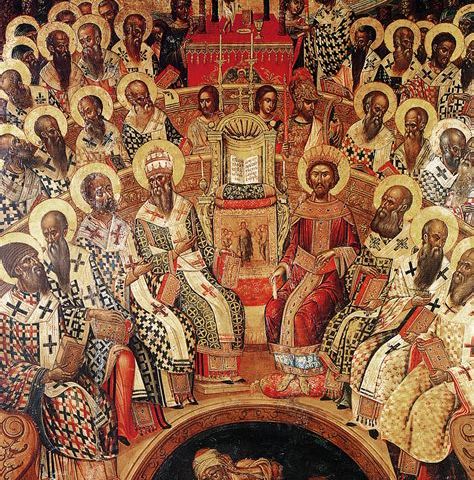I.M. Andreyev on the Moscow Patriarchate - Session 1

Download and listen anywhere
Download your favorite episodes and enjoy them, wherever you are! Sign up or log in now to access offline listening.
Description
Our Struggle - Class 7 Is the Grace of God Present in the Soviet Church? Session 1 Tonight is a transitional class. We are going to make some corrections to...
show moreIs the Grace of God Present in the Soviet Church?
Session 1
Tonight is a transitional class. We are going to make some corrections to our last talk and introduce the next section of our class, which will be the reading and study of I.M. Andreyev’s 1948 essay, “Is the Grace of God Present in the Soviet Church?”
- Corrections to Class 6, regarding ROCOR and the GOC
1. The Matthewite hierothesia - the bishops did accept hierothesia; the union was rejected by the lower clergy and the laity. This is important, because it means that the Matthewite episcopal succession was regularized, which removes an important obstacle to union in the future.
2. The medieval English Church had a blessing from the Pope to perform single handed consecrations, because of their situation. It was an oikonomia. It was never recognized as normal practice anywhere.
3. The 1974 statement of the GOC not only said that there was no grace in the state Church of Greece, but also that communing New Calendarists was forbidden. The reality in the parishes everywhere, including Greece, was that New Calendarists were being communed frequently by priests serving under bishops who had signed the 1974 statement. So officially it was forbidden, but in practice it happened often and in many places. The situation of Met. Petros of Astoria was different: it was his stated practice to commune New Calendarists. “We have to give them Communion,” he said, “or we shall lose them.” In retrospect, we see that his position was wrong, but at least he was consistent.
4. Abp Laurus of ROCOR did show interest in the Greek Old Calendarists prior to his involvement with the Synod in Resistance (Cyprianites). He made pilgrimages to Greece, and he concelebrated with Met. Kallistos of Corinth.
5. The Old Calendar Romanian Church maintained a relationship with the MP for some time. It was the HSiR bishops who convinced them not to.
B. Introduction to our new section: Andreyev’s “Is the Grace of God Present in the Soviet Church”
A landmark essay by a great mind of true Orthodox in the 20th century. Important for several reasons:
- It summarizes the position of the confessing Russian Church - the Catacomb Church and ROCOR - of the Soviet period.
3. It links ecclesiology to Orthodox anthropology and soteriology by linking the question of grace to the question of the distinction between the psychic and the spiritual.
4. It offers an example of a painful struggle for discernment of the presence of the spirit of Christ vs. the spirit of Antichrist in situations when the canons do not give clear guidance.
Tonight we shall begin reading the introduction to the 2000 edition from Monastery Press, by Protodeacon Christopher Birchall. You can order the book at https://monasterypress.com/sovchurc.html
Information
| Author | Fr. Steven Allen |
| Organization | Fr. Steven Allen |
| Website | - |
| Tags |
-
|
Copyright 2024 - Spreaker Inc. an iHeartMedia Company

Comments